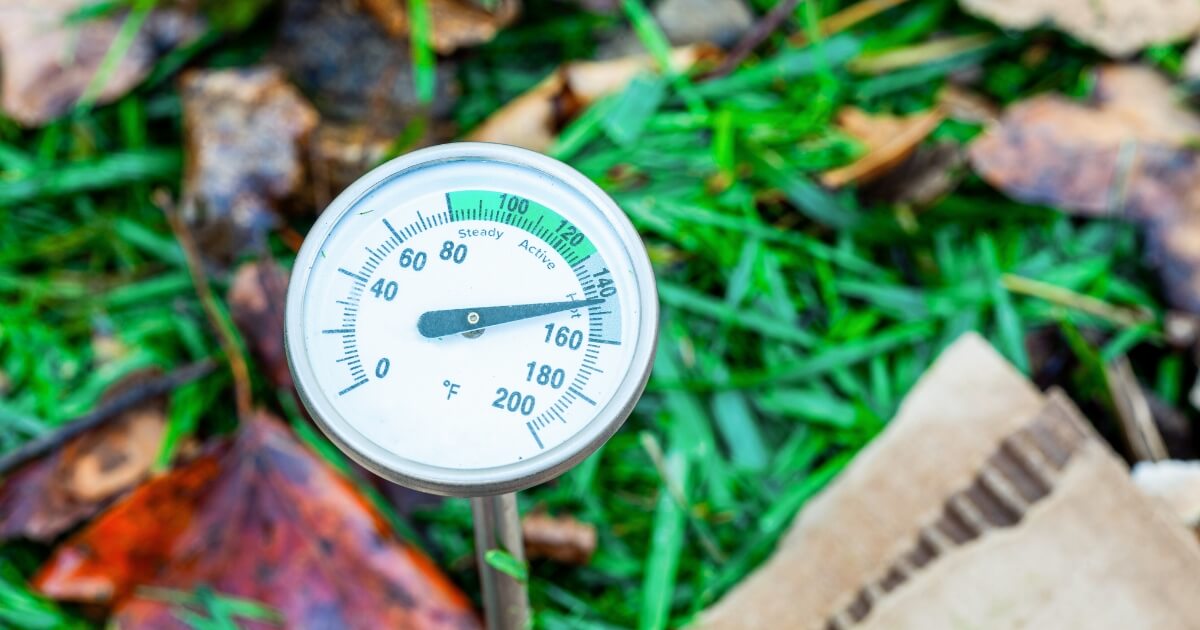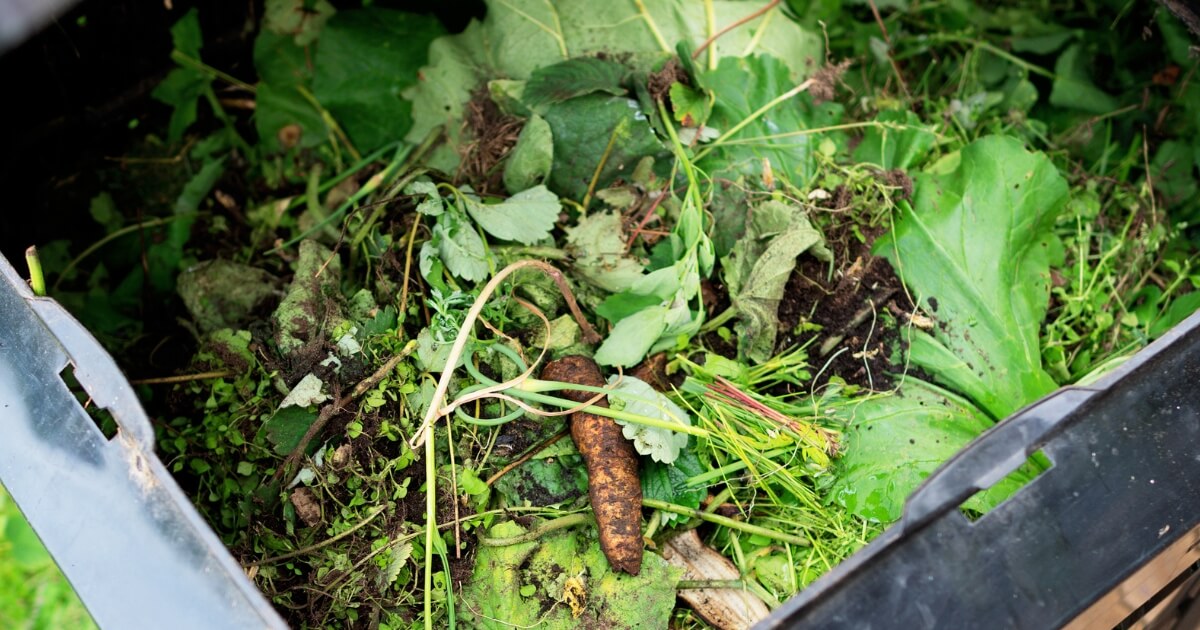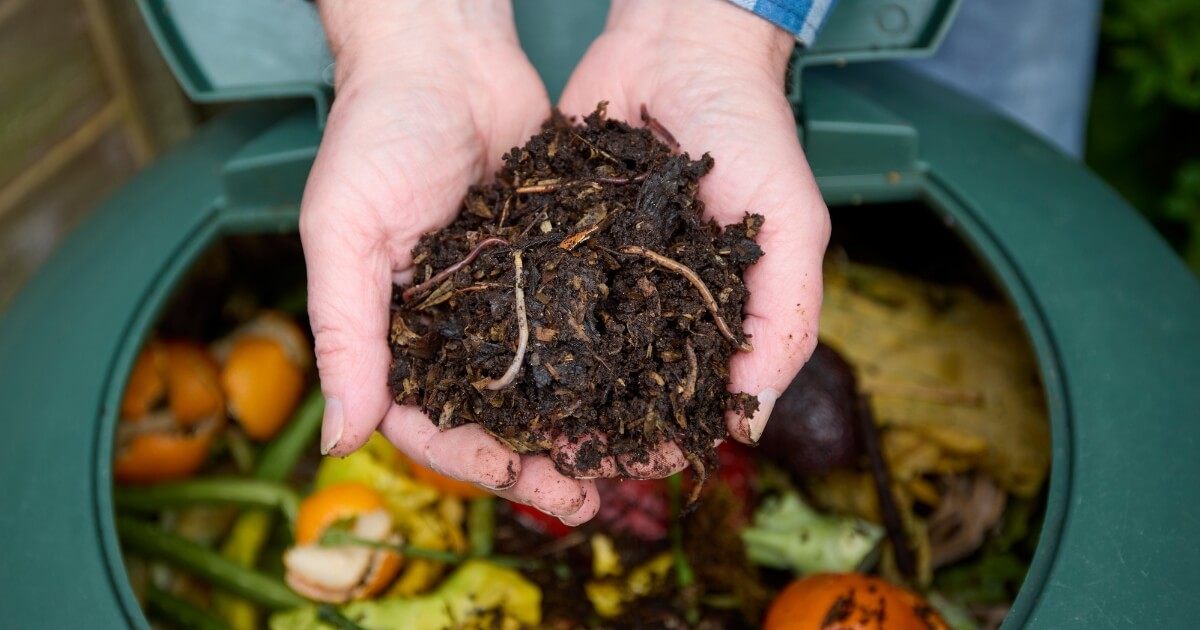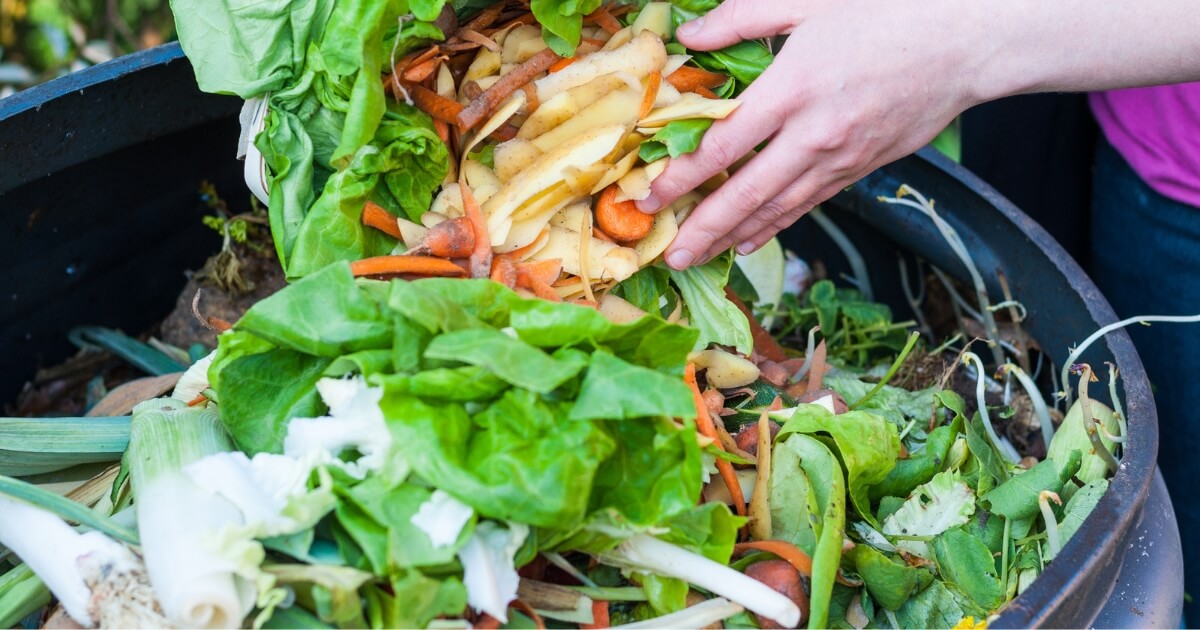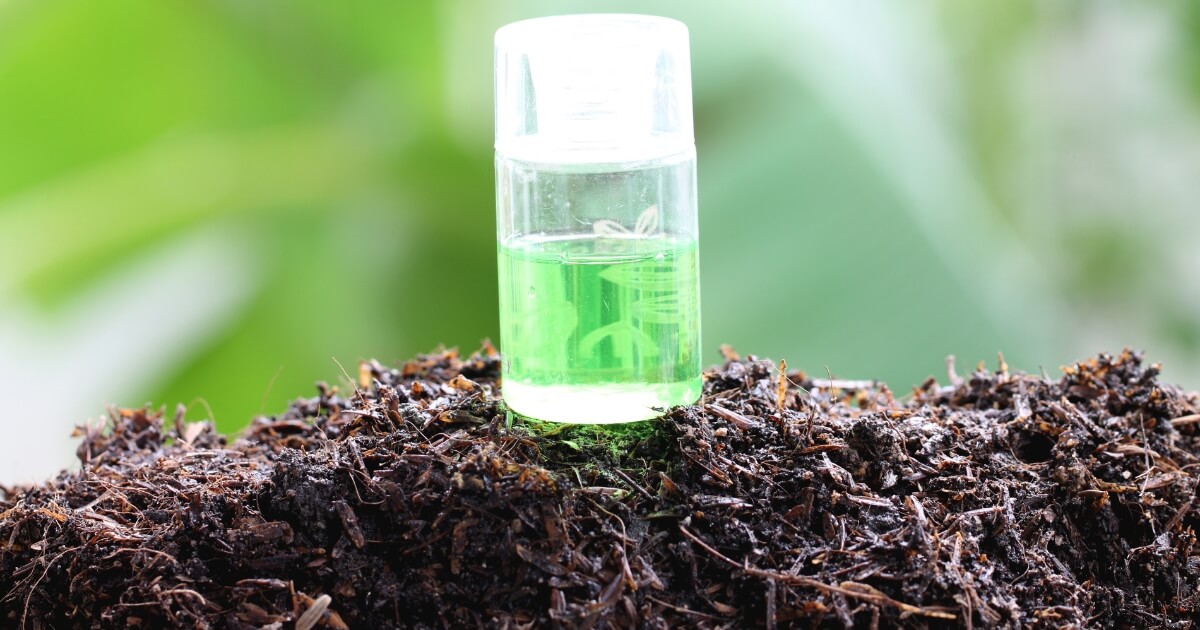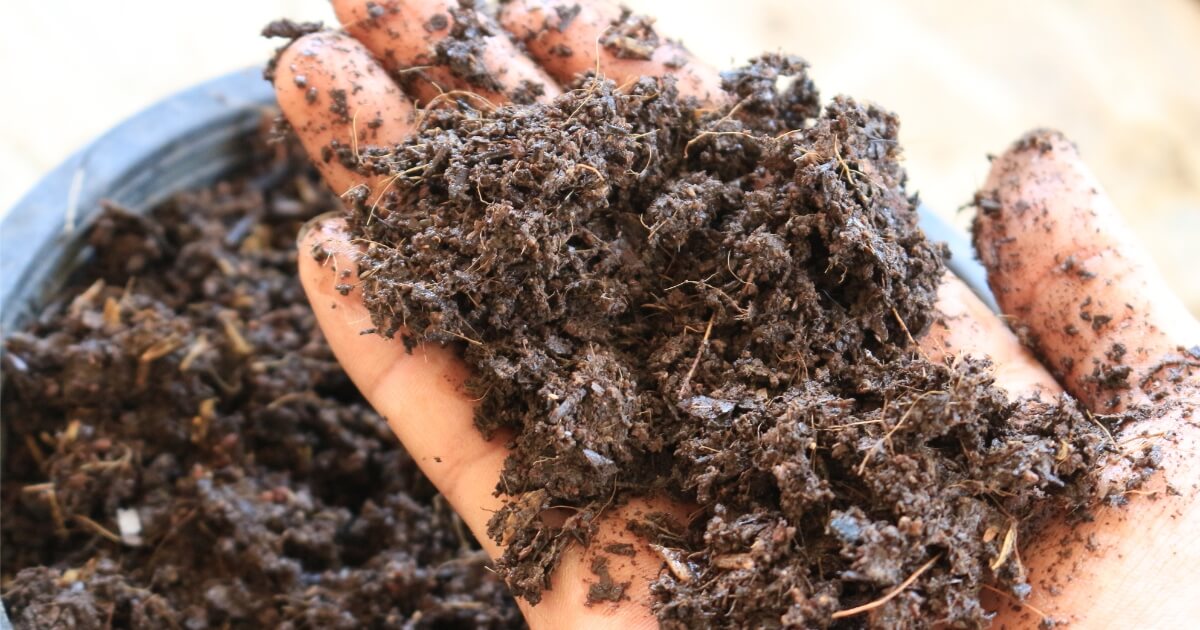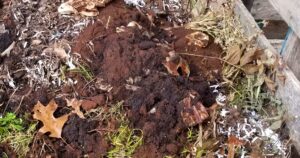The topic of composting tomatoes can get contentious among serious home composting experts, with some saying to completely avoid them while others embrace the nutrients and moisture they add.
To learn all about whether or not you should compost tomatoes, read along with this guide that explains the pros and cons, how long decomposition takes, and the best way to compost tomato fruit and plants. By the end, you’ll be a tomato composting pro!
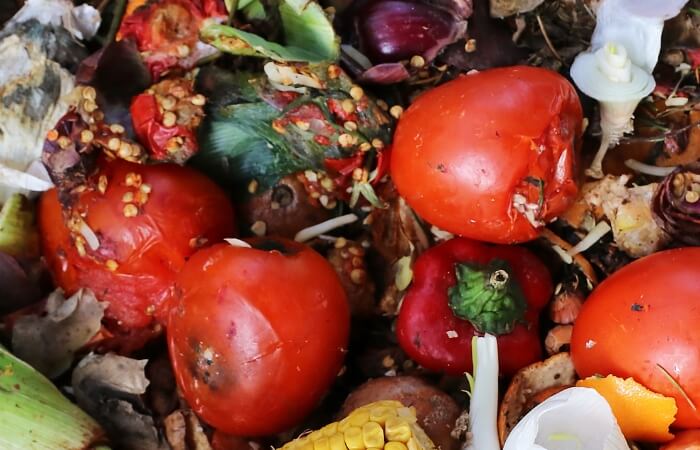
Are Tomatoes Compostable?
Yes, you can compost tomatoes like any other fruit, vegetable, kitchen, or garden scraps. However, before you start tossing in tomato fruit and foliage, consider these pros and cons:
Pros
- Decomposes quickly
- Adds moisture
- Adds nitrogen, folate, potassium, and other trace minerals
- Recycles tomato waste into useful garden amendments
Cons
- Can make compost too wet
- Pests or diseases can transfer to the compost
- Seeds may sprout in the compost or where you spread the batch
You need to take a few precautions to prevent specific problems if you add tomatoes to your composting system.
Tomatoes are 95% water. Adding a random full tomato or scraps from meals here and there to your compost pile should never be an issue keeping the moisture level in balance for optimal microbe action.
Still, you may find yourself dealing with overly wet compost if you add in large batches of tomatoes, making the compost smelly or rancid.
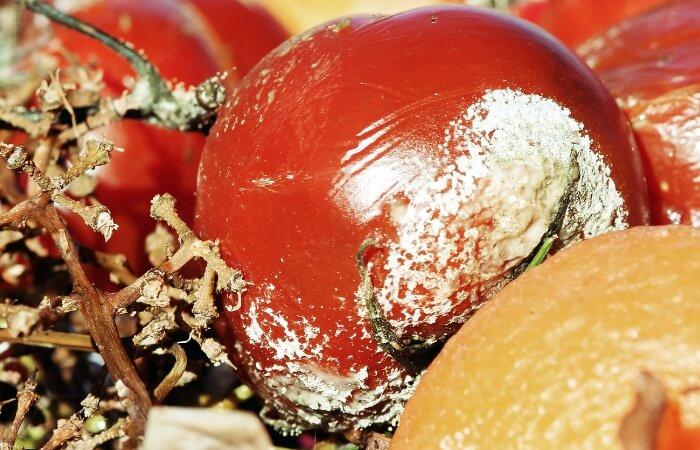
In addition, compost made with tomatoes or plant foliage harboring pests or diseases may transfer such issues to your garden after the batch is complete.
Tomatoes are chock full of seeds, which can also cause problems in your compost if they don’t break down enough to prevent growth. Sprouting tomato seeds in compost isn’t a real problem if you continue to turn the material, so the seedlings decompose with the other ingredients.
The problem is if some seeds don’t break down enough to prevent germination, when you spread the compost in your garden or planter beds at a later date, you may find new tomato plants growing where you don’t want them.
How Long Does It Take Tomatoes To Decompose?
If you leave a whole tomato on the ground, it will take anywhere from one to five months to fully break down. The temperature, rainfall, and local microbes will all play a role in how quickly the tomato decomposes, especially the thicker and tougher outer skin.
Most of the tomato decomposition, or loss of mass, is from the water evaporating within the fruit. The fibrous tomato flesh, seeds, and skin will be the last to break down, but soil microbes and fungi will do the trick eventually.
If you put whole tomatoes into a well-tended compost pile, they should become unrecognizable in about a month. However, if you chop up any tomatoes going into the compost bin, they will decompose the fastest, typically within a week or two.
For tomato plant stems and leaves, decomposition inside a composting system will take about three to six months, which is standard for any variety of soft-stem plant foliage.
What To Do With Old Tomato Plants And Tomatoes
The best thing to do with old tomatoes and plants is to recycle them into compost.
Homemade compost is an affordable, ecologically-friendly way to make a rich soil amendment you can add to your planters and garden beds to keep them looking and growing their best.
When you compost tomatoes and their plant foliage correctly, you can avoid the worry of wayward sprouting seeds or having harmful fungi or bacteria taking over the batch.
To help you successfully compost tomatoes, follow these steps:
Step 1. Gather and Chop Up Tomatoes or Plant Remains
For the quickest decomposition, take a few moments and chop up any tomatoes and plant foliage into small pieces. The smaller you make the tomato pieces, the more surface area you expose for the beneficial compost microbes to feast on, leading to faster processing.
If you worry the fluid from the tomatoes will unbalance your compost ingredients, you can chop them over newspaper or paper towels, so it absorbs excess moisture. You can then add the paper products into your compost bin without causing wet spots to occur.
Step 2. Mix the Chopped Tomatoes Into the Compost
Add the tomatoes into the compost bin or pile as a green, nitrogen-rich ingredient. It’s best to split up large batches of tomatoes into several days’ worth of material not to overwhelm a well-running system.
In addition, add the appropriate ratio of brown, carbon-rich compost ingredients to keep the moisture and carbon levels in balance.
Step 3. Turn the Compost and Monitor the Moisture Level
For the fastest processing of the tomatoes in the compost, you’ll need to turn the ingredients every five to seven days.
Monitor the moisture level inside the compost with a moisture meter. If the compost is too dry, add moist green ingredients or mist the material with water.
If the compost is too wet, add shredded dry leaves or sawdust to soak up excess moisture. Turn the compost every day or two until the dampness issue is under control.
By turning the material and keeping the moisture level ideal, the compost microbes can readily have the oxygen and water needed to process all the ingredients.
As the microorganisms eat, it generates heat and keeps the internal temperature of the compost stable, which helps quicken the breakdown of the tomatoes and other ingredients.
In addition, the heat should kill seeds and any diseases or pests lingering within the tomato plants, which is why hot composting is the best system to use when composting tomatoes.
Step 4. Continue Monitoring Compost Until Completion
The final step to compost tomatoes is to be patient and let the composting process finish.
Keep turning the material in the compost pile, bin, or tumbler, and check the temperature and moisture levels regularly.
Once all the ingredients in the compost break down and become a dark, crumbly, soil-like texture, your compost is ready, and you can remove it from the bin and use it for your landscaping needs.
In Summary
Composting tomatoes is perfectly safe if you practice the steps composting pros suggest to deal with possible diseases, pests, or seeds spreading into your garden through final batches.
I hope this guide on how to compost tomatoes helps you gain confidence in recycling even more of your yard and kitchen waste so you can watch your garden grow!
